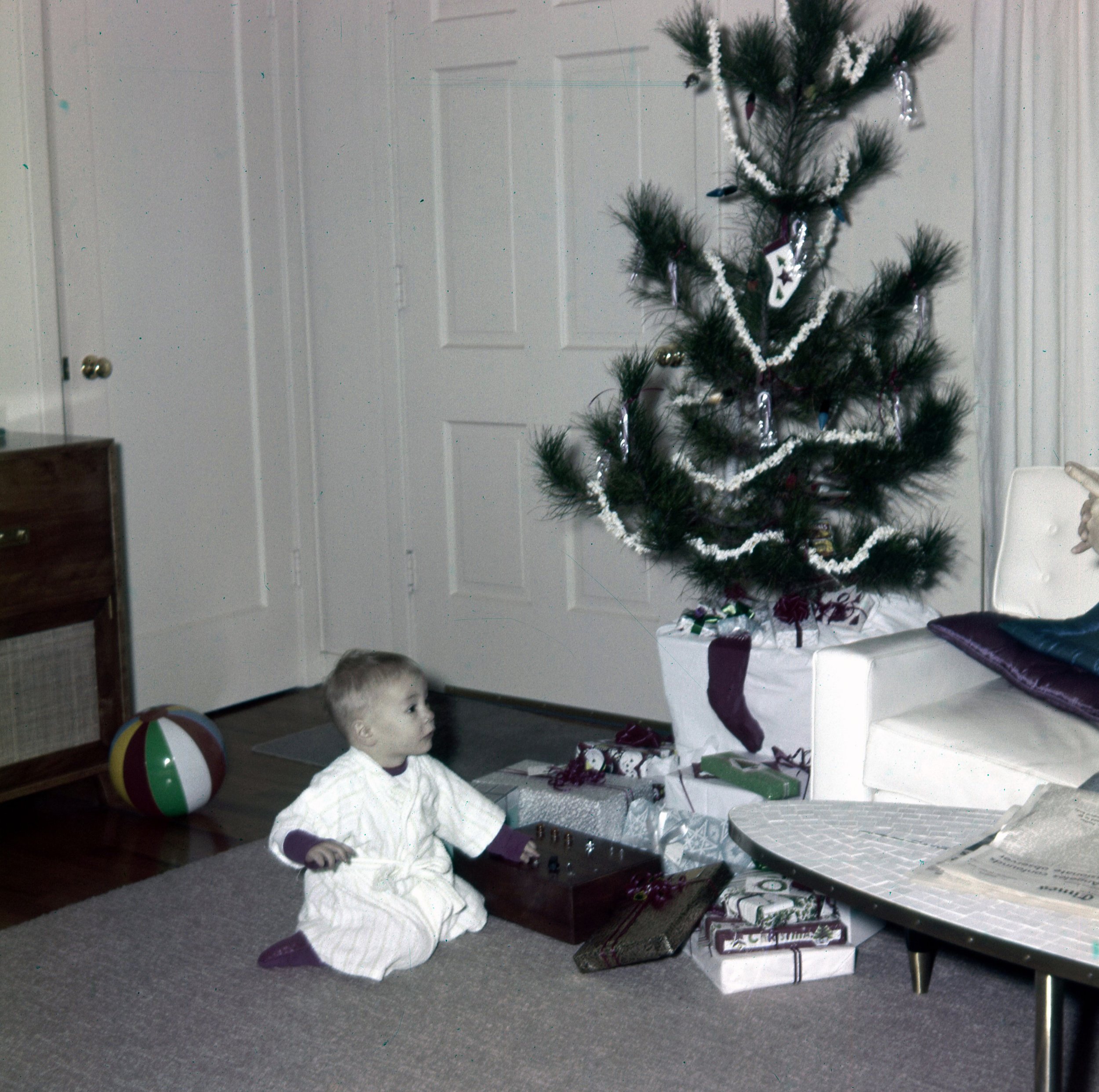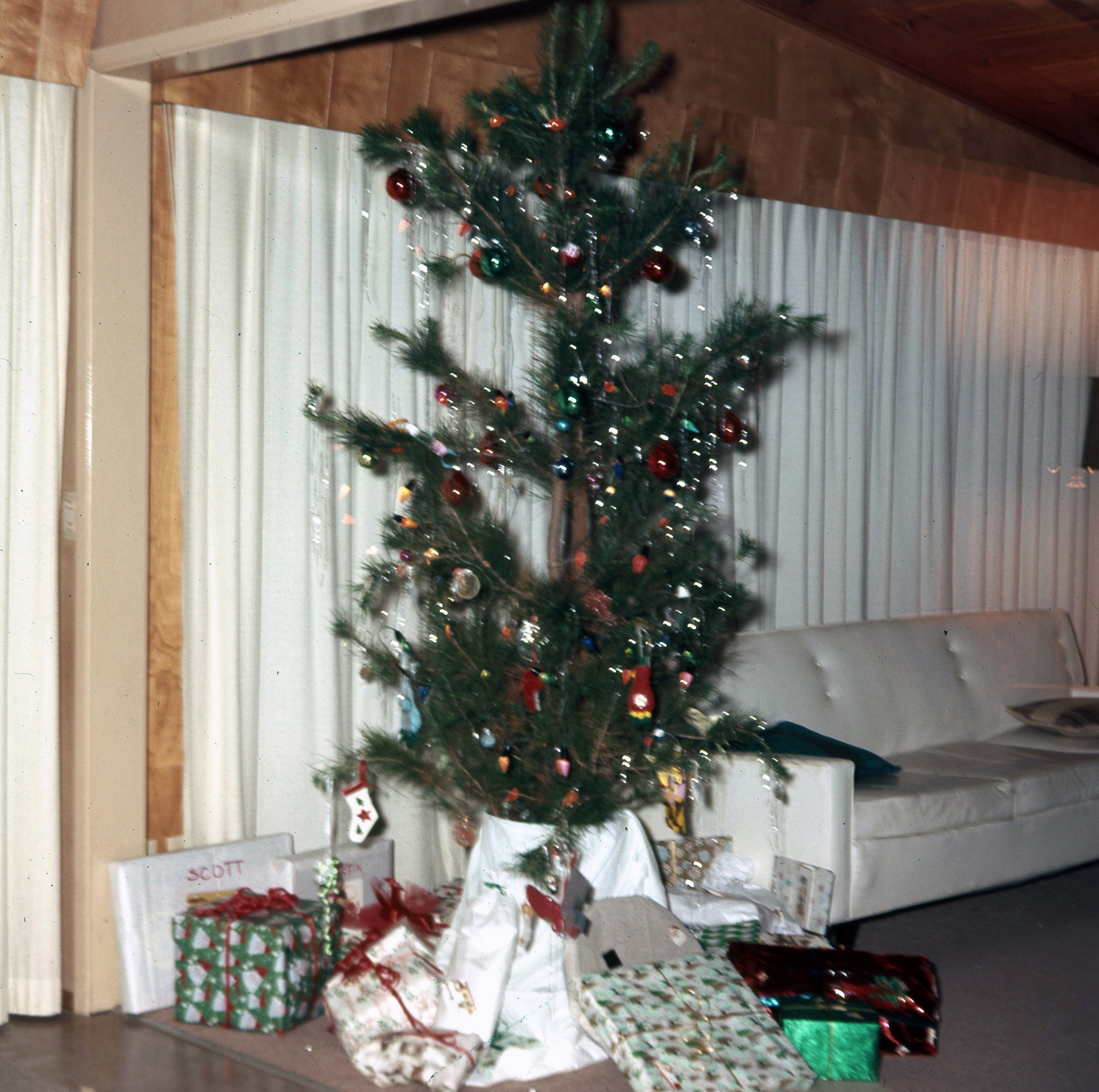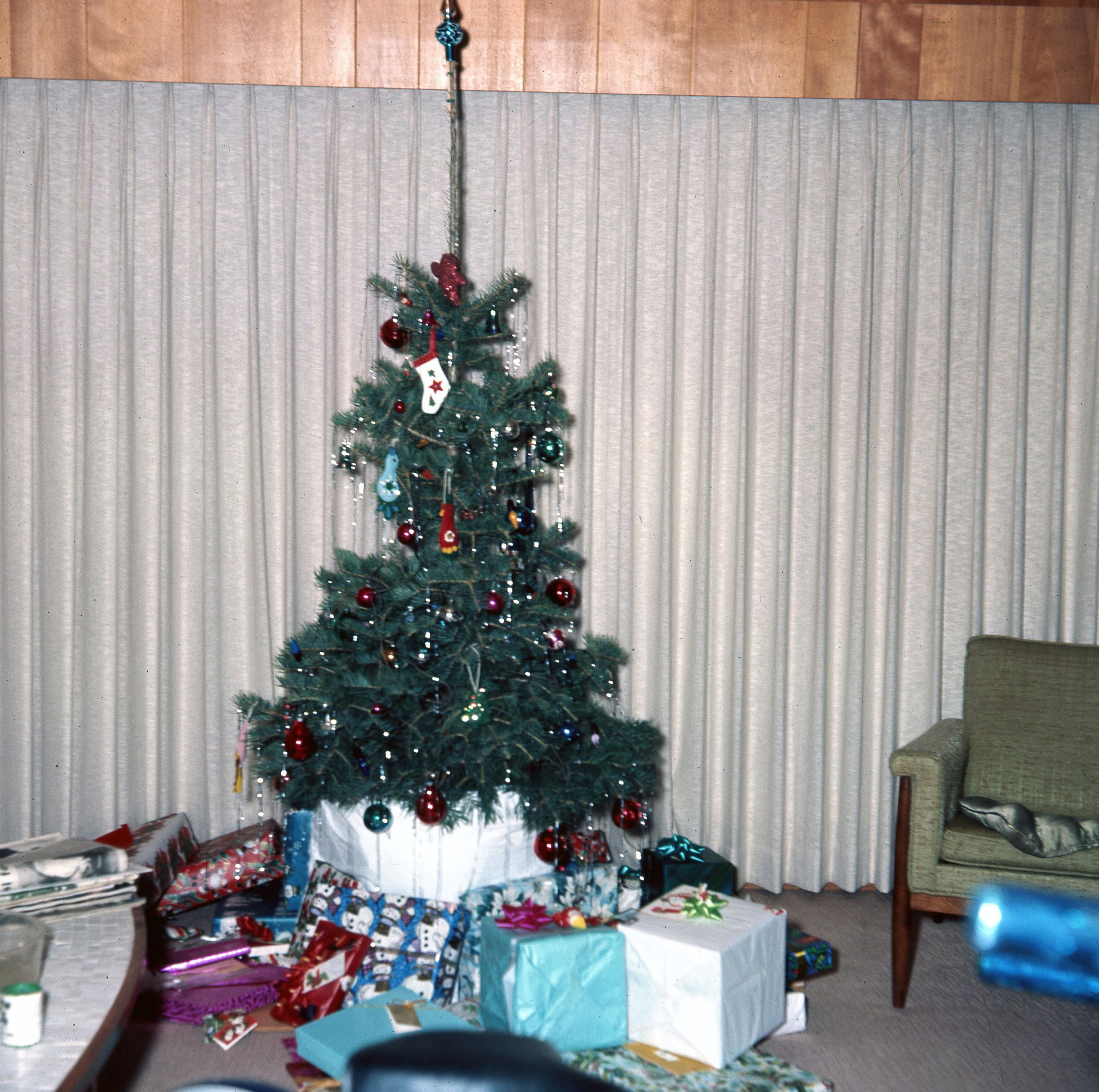A Christmas Tradition
For most of the years I was growing up, my mother sang in multiple services on Christmas eve as a member of the church choir. As a result, we didn’t develop much in the way of unique or lasting Christmas traditions.
However, in 1984, shortly after I graduated from college, Christmas fell on a Sunday. That morning our pastor gave an unusual sermon. First acknowledging that attention spans were likely to be short, he read aloud three short Christmas vignettes, written by Frederick Buechner.
I don’t mean to imply that we had no traditions. We had a few, as these photos clearly demonstrate
I found the stories and his interpretation of them to be profoundly moving, and for the next 35 years, would annually listen to the aging cassette, until it stopped working a few years ago. Seeing the writing on the wall (Would we even still have a cassette player? How many times had I rewound the tangled tape back onto the spindles?) I began to look for the originals.
For a long time, I couldn’t find them, although I did find a passage from one of them incorporated into a completely different story, which gave me a bit of insight into Buechner’s writing process. I have since learned that they were published in Secrets in the Dark: A Life in Sermons. However, getting desperate, I decided to listen to the tape and transcribe the stories as I heard them. Today, without the cassette, we try to read those transcriptions aloud on Christmas eve as part of our own family tradition.
One year, when our church was without a pastor, we even read them as sort of a reader's theater performance, with my friend, Mark, inhabiting the part of the wiseman so effectively that to this day, I hear his voice in the passage. My wife, Nancy, on the other hand, retreated to the prayer room to practice the part of the shepherd just one more time, and missed her cue by a minute or two. I should have given her the part of the innkeeper, but wanted it for myself.
Here they are, as published on frederickbuechner.com
The three stories tell the story of Jesus’ birth from three very different perspectives, each incomplete on their own, but each with something unique to contribute.
The first is that of the innkeeper, and is perhaps the easiest to identify with. Too busy to pay attention to much other than the details, he is practical and immune to the wonder of what is unfolding. As he says, when it happened, when the thing he was waiting for his whole life happened, “I missed him.”
I tend to be a skeptic when it comes to hearing the voice of God in external circumstances, but one Christmas about a dozen years ago, I believe God spoke to me directly from this sermon.
I was leaving the hospice where Mark lay dying of a brain tumor. This home for the dying was in a beautiful place, so our families had met there to visit and take some photos together, overlooking the city. I had come directly from work, so I was alone as I walked back to my car. Halfway there, my shoe caught on something in the parking lot, and I tripped slightly. I looked down, and through the tears in my eyes, I saw a small dead bird – a finch or a sparrow. Suddenly the words that I had been listening to from the cassette player on the drive over came rushing back to me. They were the words of the innkeeper who is too busy to see what is going on around him:
"… finally, we have eyes for nothing else, and whatever we see turns into a thing. The sparrow lying in the dust at your feet—just a thing to be kicked out of the way, not the mystery of death. The calling of children outside your window—just a distraction, an irrelevance, not life, not the wildest miracle of them all. That whispering in the air that comes sudden and soft from nowhere—only the wind, the wind...”
The sparrow lying in the dust at my feet… In my entire life, I have never accidentally kicked a dead bird. Yet here, at Christmas, not an hour after hearing the words, I was kicking one aside. Behind me, I could still hear the children, and the tears really began to fall. In astonishment I stopped, wondering if I was crazy, or whether I should go back and tell someone.
I still don’t have a clue when it comes to the mystery of death. Not a clue. But I know it is a mystery, and in that moment, I knew that God walks alongside us through it.
The shepherds in the second vignette are much better at noticing. Theirs is a story of finally really seeing what has been present all along. The narrator describes the angels as “things just coming into focus that had been there always.” Whether that is the way it actually happened on the first Christmas or not, it reminds me of a Guatemalan pastor whom I once knew, who was adept at seeing God’s presence where others missed it, in even the smallest things.
In the midst of the tragedies of post-civil war Guatemala, he often saw what I was incapable of seeing, and after a while it was contagious. He would have had no doubts about the dead sparrow! I have thought a lot about the time I spent with him. I have come to believe we can cultivate that same capacity, just in the questions we ask, and the things we notice.
I am nowhere near as adept at it as my friend in Guatemala, but in an effort to get better, I have begun to keep a gratitude journal, writing down the blessings in my life and the ways that I have seen God’s presence around me.
Even though the shepherds notice, they don’t really understand. (As if any of us could.) When they arrive at the stable, unsure of what they have come to see, it is the wise men who need to remind them to be still and to listen.
The wise men, alone, really see what is happening. They don’t miss it, like the innkeeper, nor stumble in obliviously, like the shepherds. They see and understand. However, significantly, when they recognize the cost, they leave.
As the narrator reflects, “And we saw, as sure as the earth beneath our feet, that to stay with him would be to share that death, and that is why we left—giving only our gifts, withholding the rest.”
His final question is one that I share. ''And now, brothers, I will ask you a terrible question, and God knows I ask it also of myself. Is the truth beyond all truths, beyond the stars, just this: that to live without him is the real death, that to die with him is the only life?"
I am betting that the answer is yes.


